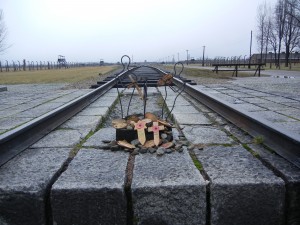My expectation of “Foe” was that it would feature Susan Barton’s time on the island with Crusoe and Friday for the majority of the novel. In reality, Susan’s time on the island takes up less than half of the whole novel, and most of it is focused on Susan’s time with Friday in England. I think it’s better this way, because her time on the island really was boring. Crusoe hardly had any depth and personality to him, and Friday seemed more of an ornamental figure than an actual person. It’s only in England that Friday becomes a little interesting, because of the number of unanswered questions that only he has the answer to. Not that he ever answers them.
I thought “Foe” was more about how stories and language shape our identity than it had to do with Susan’s “adventure” on the island. Starting on page 132, Susan explicitly voices aloud that sometimes she has no idea who she is, because:
a) Foe has distorted her story so much
b) The girl who showed up claiming to be her daughter isn’t her daughter.
The fact that Susan feels a certain dissolution of her identity brings to mind this philosophical question: If a tree falls in the forest, and no one is around to hear it, does it make it sound? In this case, Susan does have a relatively boring adventure on the island with Crusoe and Friday, but no one knows about it except for her (and Friday, but he doesn’t count because he has no concept of language anyway). Did it really happen? After all, Daniel Foe is going to distort it so much that what actually happens is lost amidst an ocean of words that tells of things that did not happen. Is Susan trying to say that because of Foe’s distortion of events, even she is unable to pick up what is reality and what isn’t? Or is she complaining because Foe isn’t doing his job correctly? She thinks he is the intended one to write her story, but he won’t write it the way she would like him to write it. I’m still confused as to why Susan didn’t write down her own story, or why she thinks Foe is the intended one. If this is her story, and if she was physically and intellectually capable of writing, why shouldn’t she be the author of her story? This was a question that lingered in my mind.
Oh, another question: Who is Susan Barton junior? I highly doubt she is actually Susan Barton senior’s daughter. But why does she persist in thinking Susan Barton senior is her mother?

